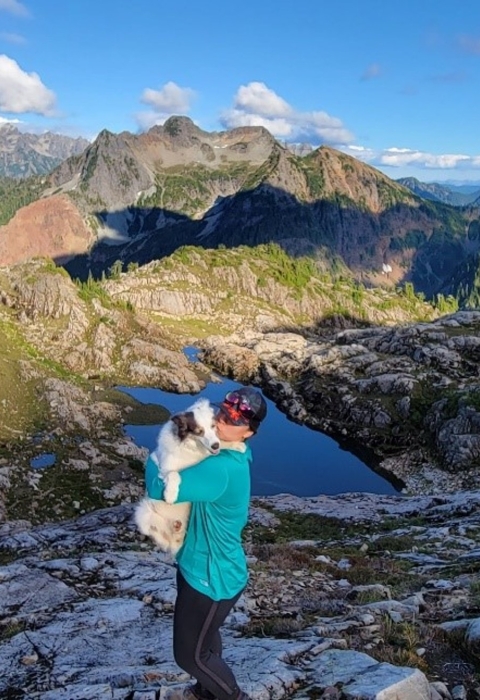Vanessa Morales (VM): Hey Felicia! We are so thrilled to have you in our office as our Kendra Chan Conservation Fellow! What led you to a career with the U.S. Fish and Wildlife Service?
Felicia Aasand (FA): I worked in the restaurant industry for the last 16 years, since I was a sophomore in high school. Once I was a senior, I enrolled in a program that allowed me to take college-level classes at my local community college, but after graduating, I realized I wasn’t ready to be a full-time student because I didn’t know which area I wanted to study. I thought about majoring in chemistry, then chemical engineering, and so I took every single math and science class except for biological sciences. None of them worked out, so I stopped going to school around 19. I then worked various restaurant jobs, sometimes two or three. When I was 28 years old, I realized I wanted to get more fulfillment from life. I really wanted to do something in environmental science because in between those years, I was recreating outdoors a lot, hiking, backpacking, and snowboarding. I wanted to help conserve the ecosystems and the animals within them because I was always out there enjoying them.
I went back to that same community college and began taking biology courses before transferring to Oregon State University. My degree is in Fisheries, Wildlife, and Conservation sciences. It’s kind of amazing how specific it is, but also exactly what I was looking for this whole time.
VM: Wow! What a story! Changing your career is a huge step that requires a lot of work. Sounds like you’re also very adventurous in the outdoors! Where does that stem from?
FA: Growing up, my mom would take my twin sister and I out hiking. We often went fishing for salmon and have always enjoyed the outdoors.
VM: I am so glad your position gets you outside often! What is your project for the Kendra Chan Conservation Fellowship?
FA: I am collecting pre-restoration data at five locations for planting milkweeds. I am also doing bird point count surveys, and plant and monarch surveys with my team. I am learning about what these locations are like before planting milkweeds.
VM: Sounds like an interesting project! Are there skills that you bring from your previous roles that help you with your current work?
FA: I think that everybody should work in a restaurant for their first job or at least work in a restaurant at one point in their life because it gives you great customer service skills that help you interact with people. This translates really well for conservation because you have to speak with a lot of stakeholders and partners, so you have to be able to be very receptive to their feelings and perspectives. Working in a restaurant helped me become very detail-oriented, which really helps in surveying and data collection. And of course, multitasking!
VM: Absolutely! Do you have any advice for someone who is looking to transition into a career in conservation or someone who wants to change industries?
FA: I say go for it! You’re never too old, it is never too late, everyone is on their own timeline. You don’t have to go down the same path as everyone else. If you want something, make that change in your life.
VM: I agree! Thank you so much for sharing your story. Before we close out, can you share how you spend your free time?
FA: I am a hiker and a backpacker, and I have an Australian shepherd who loves to join!
VM: Thank you, Felicia! We so appreciate having you at the Ventura Fish and Wildlife Office!
FA: Thank you! I am so grateful to be a Kendra Chan Conservation Fellow. Although I never met her, I feel so connected to her, and grateful to have been chosen to carry on her legacy.





